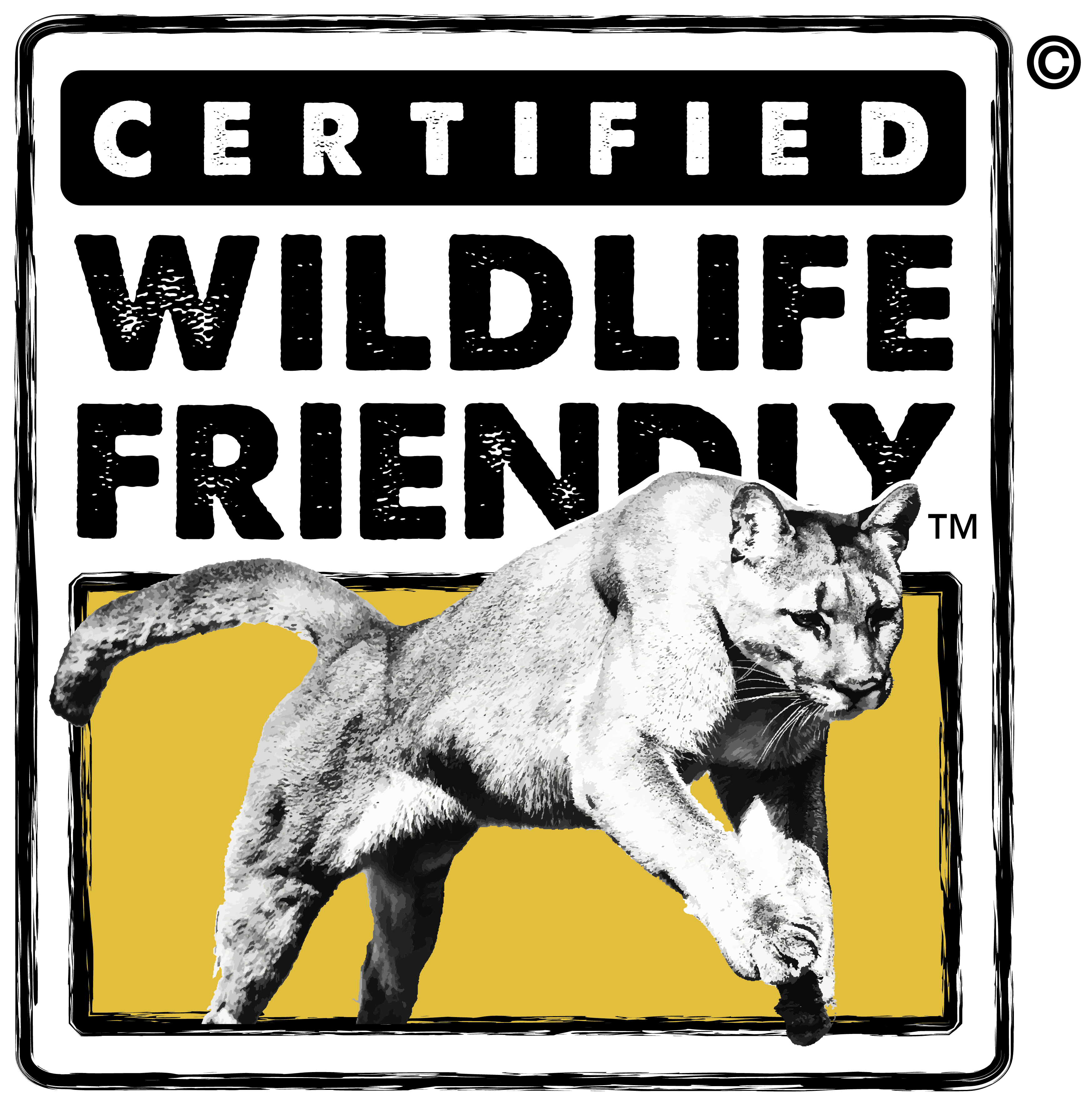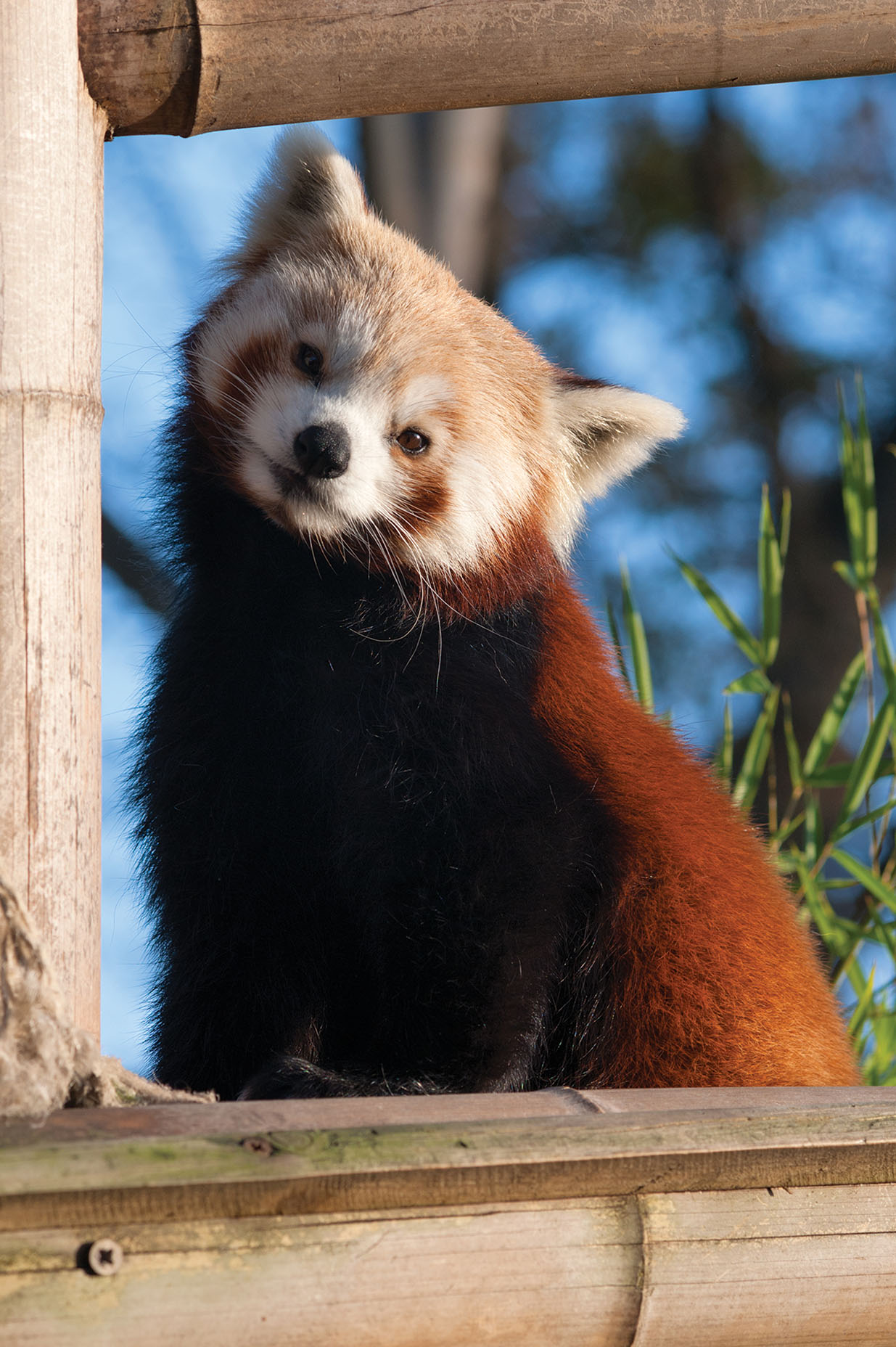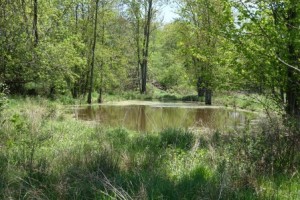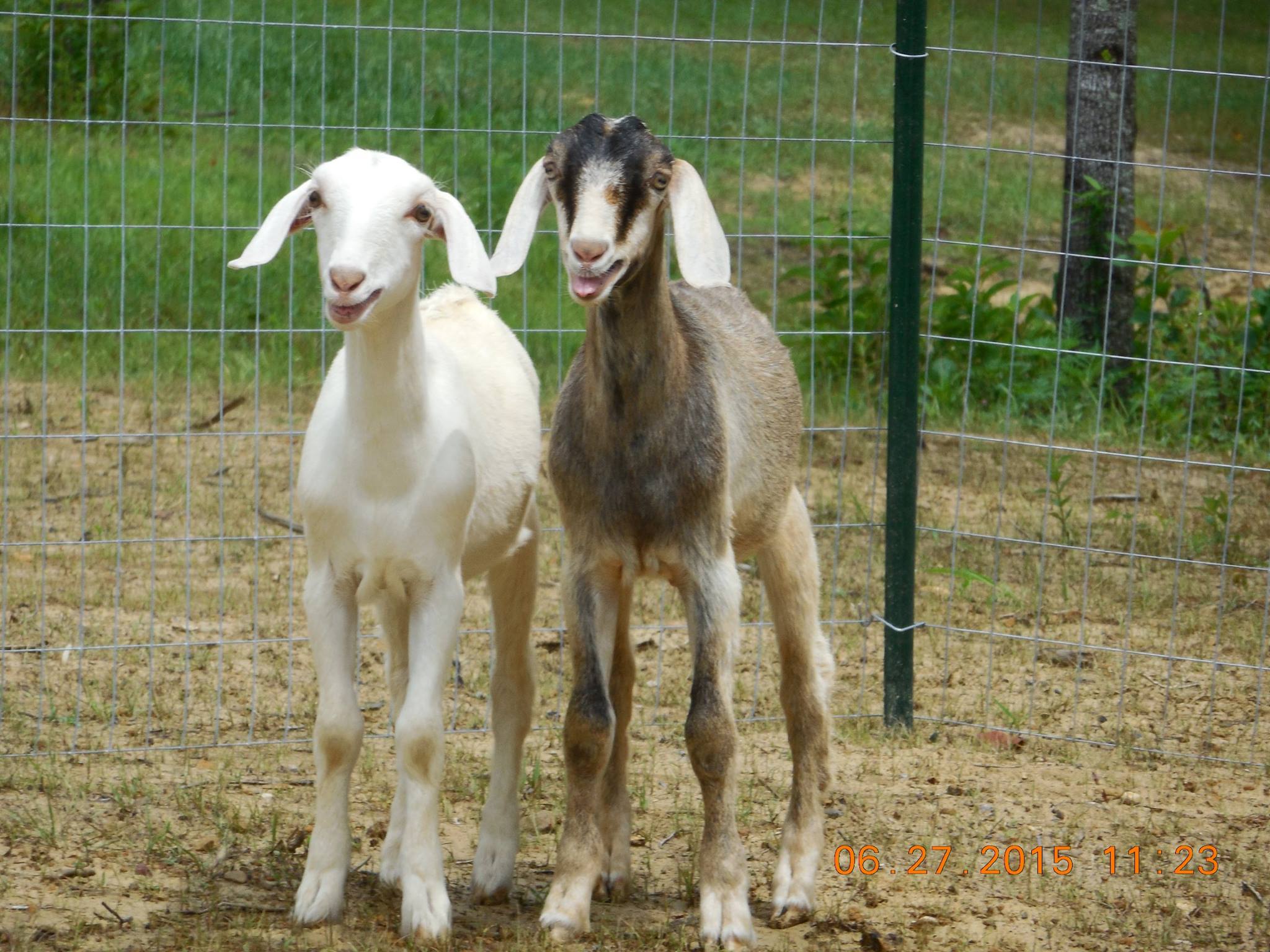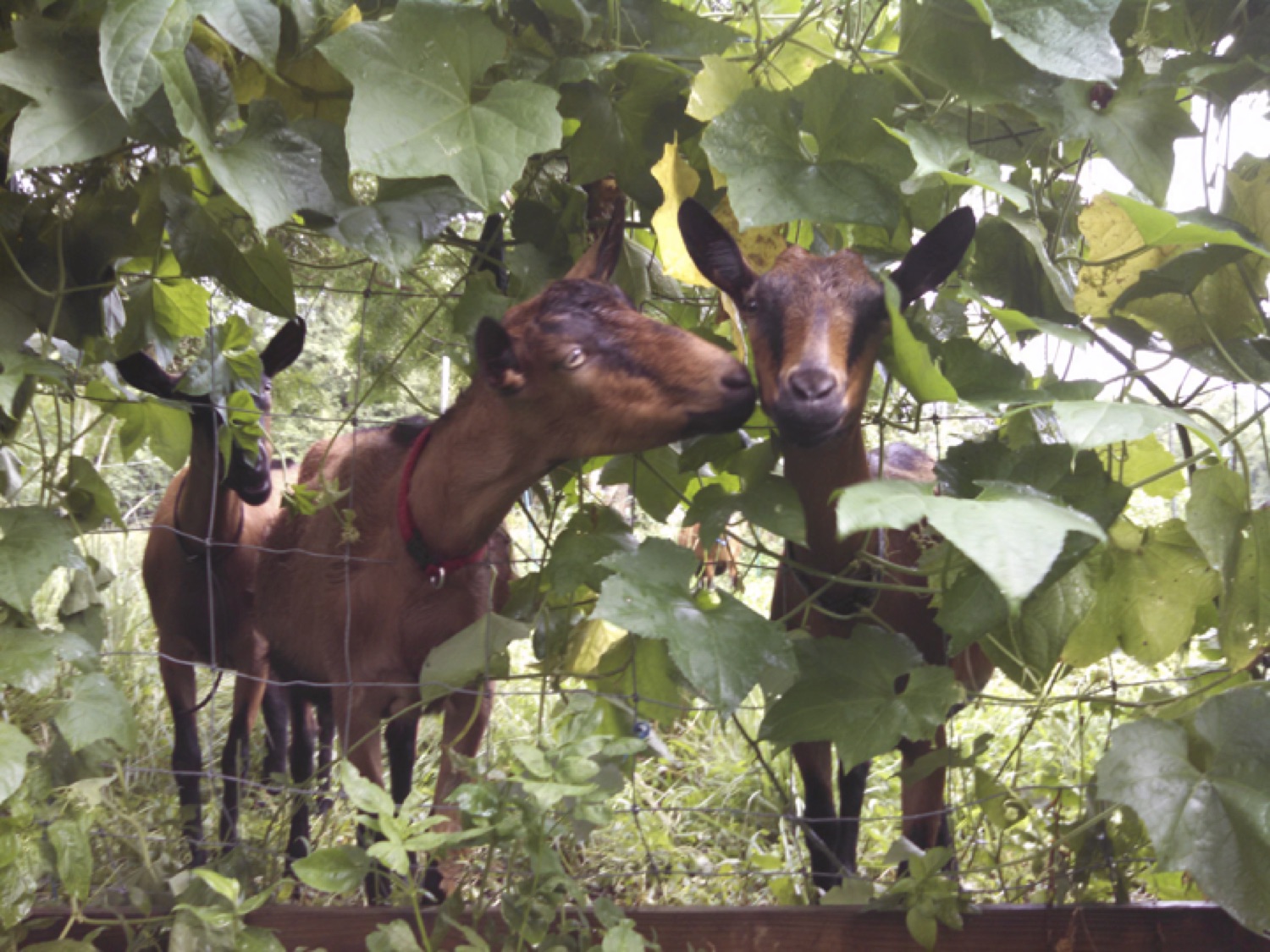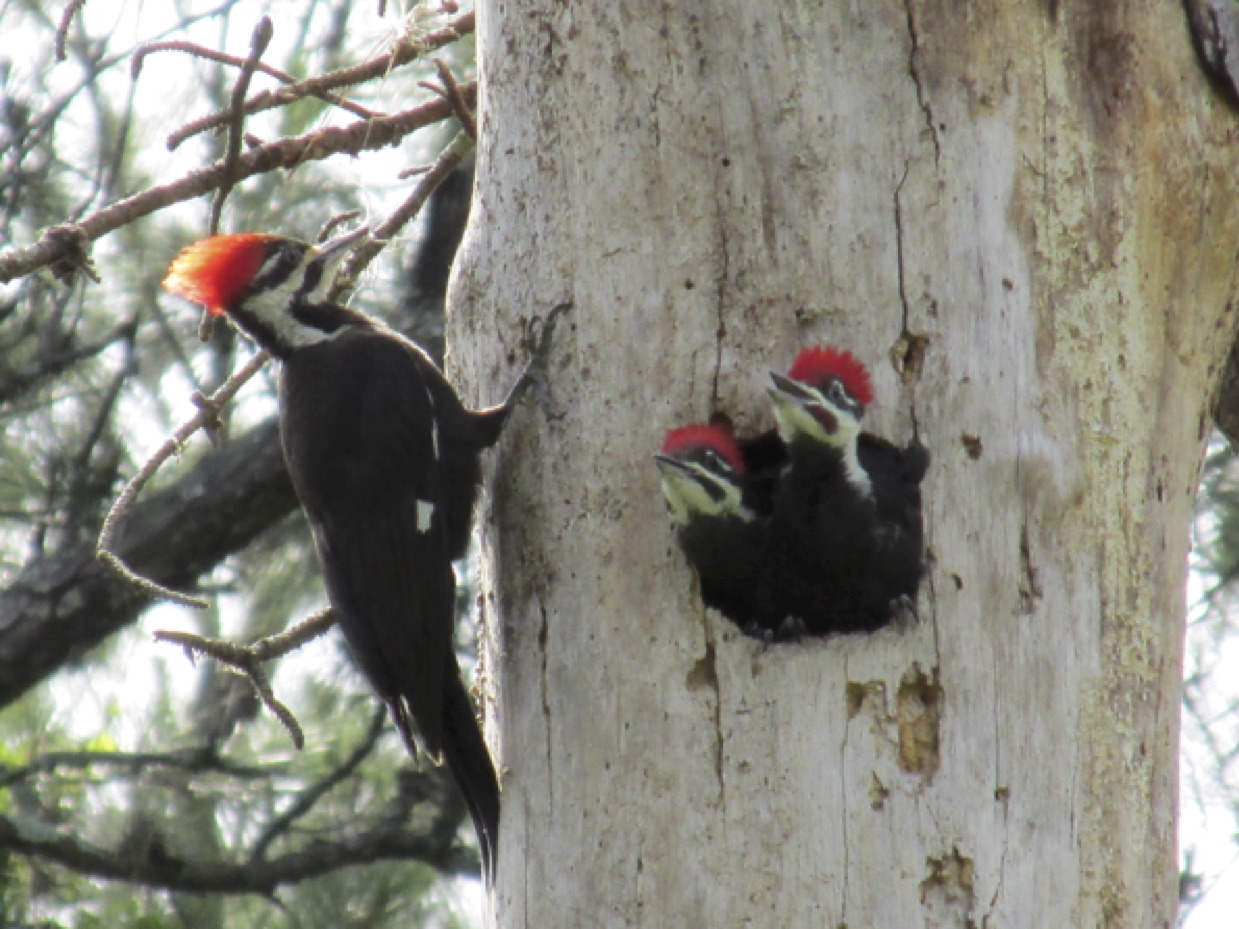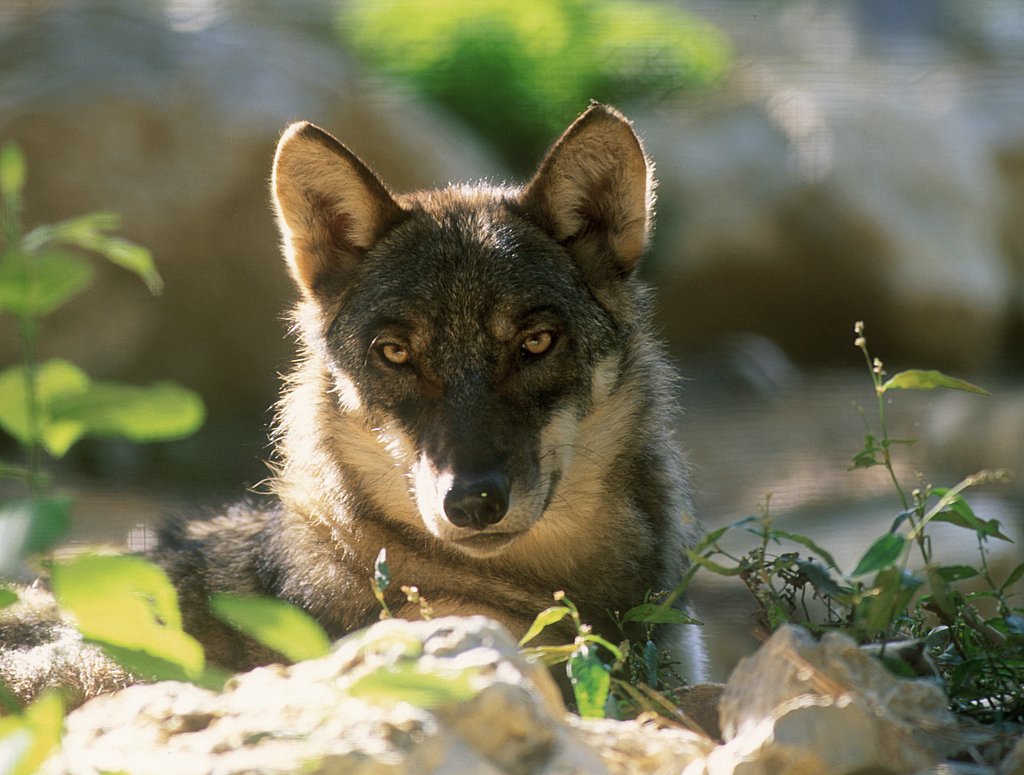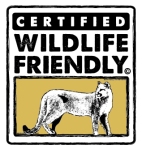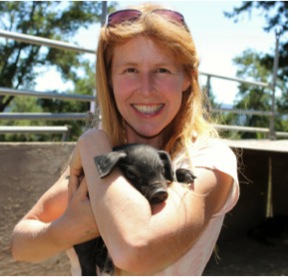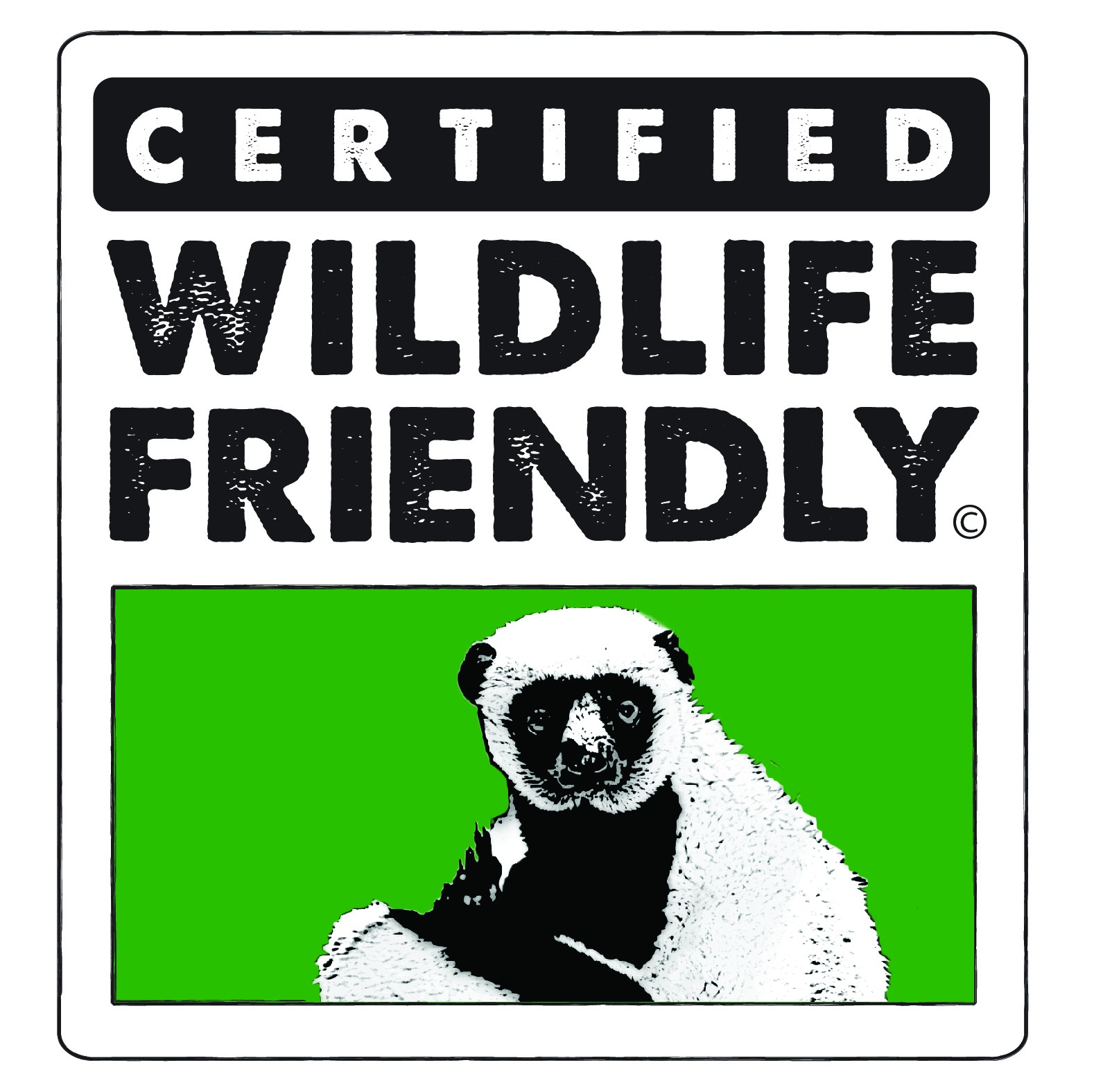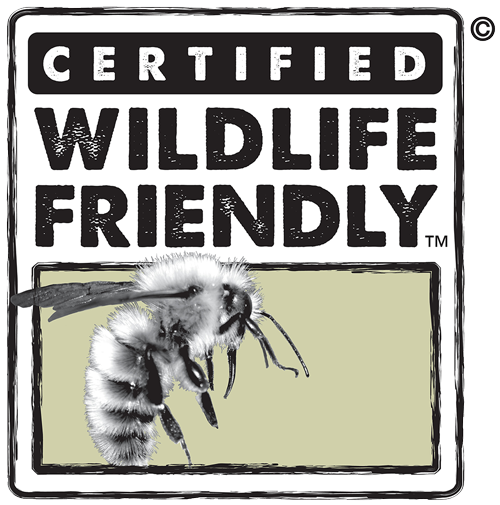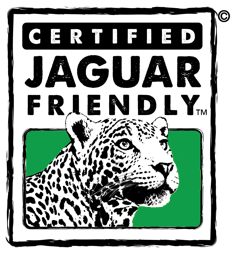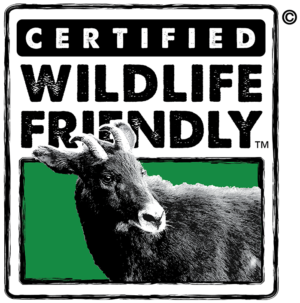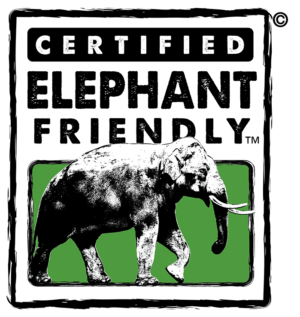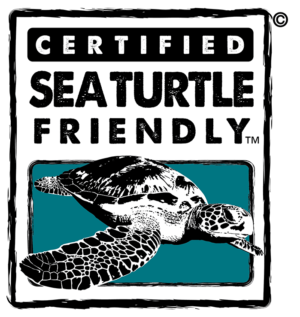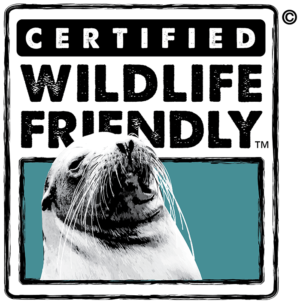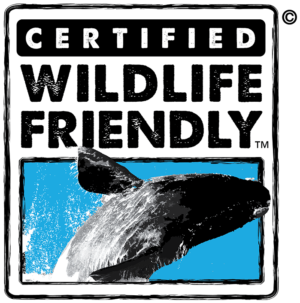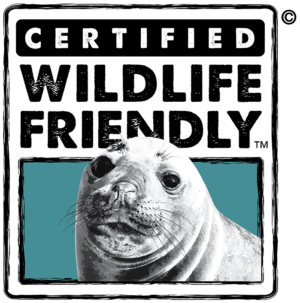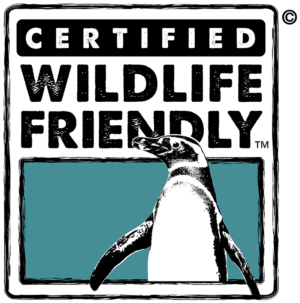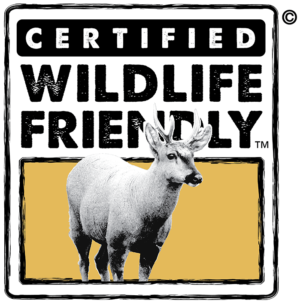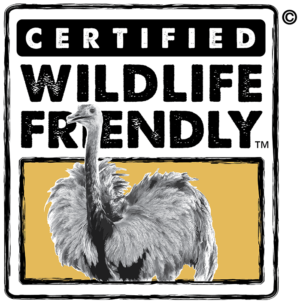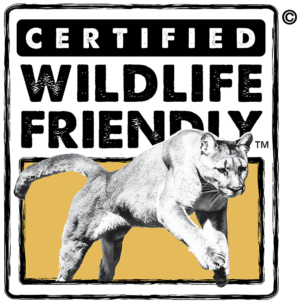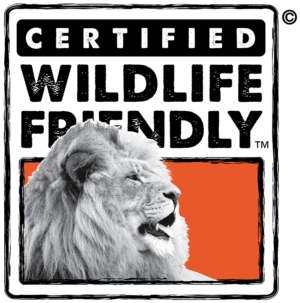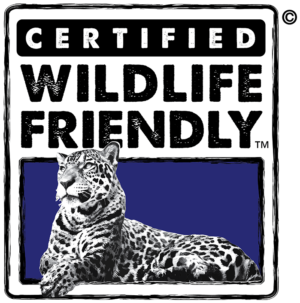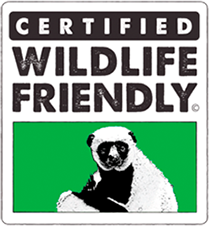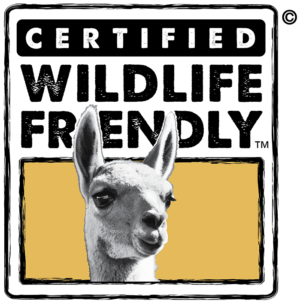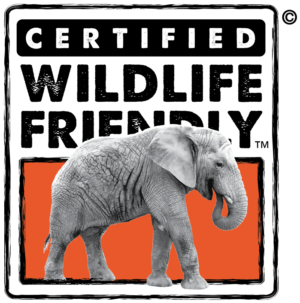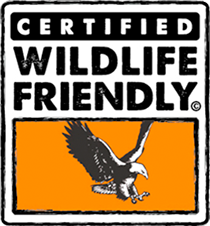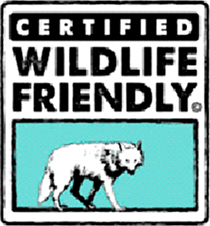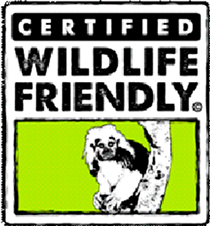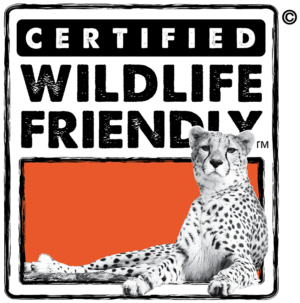Pasturebird First Southern California Farm to Achieve Certified Wildlife Friendly® Status

(c) Primal Pastures
Warner Springs and Murrieta farm raises pastured chickens, rebuilds healthy, regenerative soils and grasslands, and coexists with wildlife.
FOR IMMEDIATE RELEASE
Warner Springs, CA, September 18, 2016 Most people don’t set up a wholesale pastured poultry operation in an area known for its mountain lion activity as much as for its orchards. Yet for farmer Paul Grieve of Pasturebird, flourishing habitat is an integral part of farming. “The important thing to us is that we build an ecosystem. Our role is to steward the land and grow a great environment for Mother Nature.”
On its newest farm site—100 acres of a 1000 acre parcel that meets the Palomar and Iron Spring Mountains in Warner Springs—Paul and his family are restoring a former potato field to permanent pasture. They ensure wildlife corridors remain open and use a variety of methods to protect their chickens, in order that a variety of wildlife can pass through the property. “We end up seeing snakes, rabbits, birds, worms, deer, and coyotes. I love being able to see those guys come through the farm but not interrupt our operations. Knowing that mountain lions are around makes it even better. It means we’re doing something right.”
This sentiment, together with a variety of husbandry practices to meet the farm’s stewardship mission, has enabled Pasturebird and sister location, Primal Pastures, to become Southern California’s first farm to achieve Certified Wildlife Friendly® status. Certified Wildlife Friendly® recognizes farms and ranches committed to regenerative practices that enable wildlife and livestock to coexist. The farm is working to restore perennial grasslands. It uses managed, multi-species grazing practices to improve soil. It conserves wildlife corridors, and relies upon proactive, humane practices to deter predators, among other key attributes. Along with peers around the globe, Pasturebird and Primal Pastures are part of a progressive wave of agriculture that models the critical role of farms and ranches in sustaining wildlife and habitat.
The farm’s efforts have been noticed by the Los Angeles Dodgers and the Lakers, both of which have accounts. “Pasturebird’s commitment to transparency and raising birds the way they were meant to live is truly inspiring,” says chef Alan Latourelle of Wolfgang Puck, another satisfied customer. Kitchen workers from the hospitality group’s Southern California staff recently toured the farm, gaining first-hand experience of what Pasturebird terms simply “real chicken.” Inspired by renowned grass farmer Joel Salatin of Virginia, Paul Greive and his family are committed to creating a scale-alternative to factory farming that cares for the land, the animals and consumers’ health.

(c) Primal Pastures
The farm started simply enough, 5 years ago, from the family’s search for healthy food for its own use: “We were paying a bunch of money for labels, but not good food,” explains Paul. “We wanted to eat meat that was not bad for the environment or our bodies,” he explains. “We couldn’t find what we were looking for.” And, so what began with an order of 54 chickens for personal use turned into a vocation for 2 generations and multiple branches of Paul’s family. Pasturebird, a wholesale operation opened in 2015, builds upon the success of Primal Pastures, the family’s direct-to-consumer farm in Murrieta.
Livestock guardian dogs are integral to the farm’s ability to coexist with wildlife. While predator losses were significant in the farm’s first true commercial year, the family quickly realized the use of lethal control “didn’t jibe at all with what we were doing,” says Paul. Rather, “we were working to “heal the land, heal the soil, and participate with nature.” Today, the farm raises its own Anatolian Shepherd/Great Pyrenees mix guardians. The dogs help to protect the flock, which is moved to fresh pasture daily in open-air, floorless chicken tractors. The farm vision includes having its operations become carbon-neutral in a few years, by offsetting the energy put into tractors and other equipment through its soil building activities.
The farm’s practices mean it is a regional model. Winston Vickers, a veterinarian with the Southern California Mountain Lion Project states: “I am thrilled that Paul and his team are leading the way in the region by taking measures to not only protect their chickens and raise healthier ones, but simultaneously helping to keep wildlife populations and the ecosystems healthy. I applaud their foresight and leadership, and urge others to follow their great example.”
Its efforts mean great food, too. “Seeing chickens that you can tell are happy and healthy is refreshing in this day and age. I never thought I would be so excited about chickens” continues Chef Latourelle. Thank you Pasturebird for what you do, it makes our jobs much easier.”
###
About Pasturebird and Primal Pastures
Primal Pastures (direct to consumer) and Pasturebird (wholesale) farms raise pastured chicken in Southern California. By rotating the chickens to fresh pasture every single day, the farm’s chicken is not only healthy and delicious but also goes beyond sustainability to rebuild healthy, regenerative soils and grasslands.
Instead of using antibiotics to fight disease within the flock, Pasturebird and Primal Pastures use a healthy environment of pasture, sunshine, fresh air, and space to prevent sickness. Instead of marketing vegetarian-fed chicken (chickens are not vegetarians), we want our chickens to eat as many bugs and worms as possible. And instead of hiding our farm from the public, we know that our best marketing is transparency, so we regularly open the ranch for tours and events. For more information, contact Paul Greive via 855-4PASTURE or paul@pasturebird.com and visit www.pasturebird.com and www.primalpastures.com
About Wildlife Friendly Enterprise Network
The Wildlife Friendly Enterprise Network and its Certified Wildlife Friendly® and Predator Friendly® programs represent farmers, ranchers, artisans and conservation heroes from around the world. Participating farms in North America maintain and enhance wildlife habitats and employ a mix of careful observation and proactive practices to allow wildlife and livestock to coexist.
Certified Wildlife Friendly® products contribute to the conservation of over twelve million hectares of diverse wetlands, forests, and grasslands; protect keystone endangered species in North America, Europe, Africa, Asia and Latin America, including wolves, elephants, cheetahs, red pandas and snow leopards, and benefit over 200,000 people through increased food security, income and employment. For more information visit: www.wildlifefriendly.org
Contact:
Paul Greive, Chief Executive Officer
Pasturebird Poultry Company
855-4PASTURE; paul@pasturebird.com
BeadWORKS, which empowers women and conserves wildlife in northern Kenya, is now Certified Wildlife Friendly™
FOR IMMEDIATE RELEASE
ISIOLO, kenya: – 31 march-2017– The Wildlife Friendly Enterprise Network (WFEN), a global community dedicated to the development and promotion of products and tourism that contribute to the conservation of threatened wildlife and to the economic vitality of rural landscapes, is pleased to announce the awarding of Wildlife Friendly® Certification to BeadWORKS Kenya, a business line of Northern Rangelands Trading Limited (NRTT), providing conservation-linked economic opportunity to people and communities in northern Kenya.
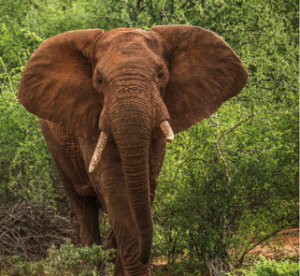
photo credit Ami Vitale
When you empower women in northern Kenya, you are supporting children’s education, boosting local economies and protecting wildlife. Every BeadWORKS item is handcrafted by one of over 1,000 women from 9 NRT community conservancies. The women gather together under the shade of an acacia tree to craft individual beaded items for sale all over the world. Through BeadWORKS, they are able to earn a living using their traditional beading skills rather than through livestock grazing, charcoal production and other environmentally damaging activities.
BeadWORKS empowers pastoralist women and changes their attitudes about local wildlife as they discover the connection between bead sales and wildlife protection. The ripple effects of these attitudes spread through their families and communities, creating broader impacts for wildlife. Many species – in particular elephants – are thriving as sustainable businesses grow around conservation. Since 2012, elephant poaching in northern Kenya’s community conservancies has dropped by 53%.
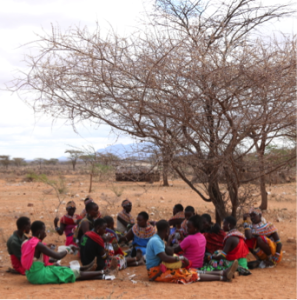
By buying Certified Wildlife Friendly® products from Beadworks consumers are helping empower women and families, and conserve wildlife and natural resources in northern Kenya.
###
About Wildlife Friendly Enterprise Network
WFEN and its certification programs represent grassroots farmers, ranchers, artisans, indigenous peoples and conservation heroes from around the world, including two World Bank Development Marketplace Award winners, a U.N. Equator Prize winner, leadership in the world’s marketplace for REDD+ Carbon Offsets, a Time Hero for the Planet, and a National Geographic Big Cats Initiative grantee. Certified Wildlife Friendly® products contribute to the conservation of over twelve million hectares of diverse wetlands, forests, and grasslands; protect keystone endangered species in Asia, Africa, Europe, and Latin and North America – including the snow leopard, tiger, elephant, cheetah, red panda, and wolf – and benefit over 200,000 people through increased food security, income and employment. For more information visit: www.wildlifefriendly.org
About BeadWORKS
BeadWORKS Kenya is a business line of Northern Rangelands Trading Limited, providing conservation-linked economic opportunity to people and communities in northern Kenya. For more information visit: https://www.beadworkskenya.com/
Instagram @beadworkskenya
Facebook: Beadworks Kenya
https://www.facebook.com/beadworkskenya/
Contact
BeadWORKS
Beatrice Lempaira – beatrice.lempaira@nrt-kenya.org
Wildlife Friendly
Julie Stein: Julie@wildlifefriendly.org
Aveda Becomes the First Global Beauty Brand to Join the Wildlife Friendly® Enterprise Ntwork Supporting People and Planet
FOR IMMEDIATE RELEASE
NEW YORK – 18 DEC 2015 – Aveda, whose mission is to care for the world we live in, and the Wildlife Friendly Enterprise Network (WFEN), a global community dedicated to supporting products that conserve threatened wildlife and contribute to economic vitality in rural landscapes, are pleased to announce an exciting new partnership dedicated to protecting wildlife while supporting local communities.
Beginning in 2002, Aveda has sourced handcrafted lokta bark paper from Himalayan Bio-Trade Pvt. Ltd (HBTL), an organization in Nepal, owned by a consortium of community-based groups, for their holiday and year-round gifting boxes. Aveda’s purchase of lokta paper from Nepal helps support this local industry, which creates local employment to help keep families together. It also helps reverse local deforestation in the region — in 2009, the lokta paper earned Wildlife Friendly® certification which helps to protect 42,000 acres of forest, maintaining critical wildlife corridors for 21 iconic endangered species, including the grey wolf, snow leopard, red panda and wild yak.
“Fueled by a common passion for protecting wildlife, our partnership with Wildlife Friendly Enterprise Network is an example of Aveda’s efforts to make a meaningful commitment to action in service to the Earth,” says Dominique Conseil, President, Aveda. “A sustainable Earth demands that we care deeply about our collective future. For Aveda, we are proud to be a member of WFEN and support the protection of wildlife habitat.”
“The Wildlife Friendly Enterprise Network (WFEN) knows that consumers care about protecting endangered species and providing sustainable livelihoods for communities that co-exist with wildlife. We are therefore thrilled to welcome Aveda as the first global beauty brand to become a WFEN Founding Corporate Member. Aveda has been a true industry leader in responsible ingredient sourcing that helps support local communities. Aveda’s sourcing of Wildlife Friendly® certified products is a model for the beauty industry” said Ann Koontz, WFEN co-founder and Vice President of the Board of Directors.
WFEN Founding Corporate Network Members share the WFEN vision for a world where people and wildlife not only coexist but thrive and are committed to sourcing and creating beautiful products that are made in a manner that respect the producers, land, and wildlife. WFEN membership is open to businesses who are committed to the WFEN mission and who actively contribute to Wildlife Friendly® business practices. This contribution may be through building Wildlife Friendly® supply chains, production, sourcing and selling Certified Wildlife Friendly® products, building increased awareness and demand with consumers, and implementing best practices for biodiversity conservation and business.
###
About Aveda
Founded in 1978 in Minneapolis, MN, Aveda creates high performance, plant-based products for beauty professionals and consumers. Aveda innovates in botanical technologies, combining the principles of modern science and Ayurveda, the ancient healing art of India, to develop performance-driven hair, skin and body products—made with pure flower and plant essences—that are created with respect for the Earth, and a comprehensive menu of ritual-based treatments for holistic beauty.
Throughout the years, Aveda has pioneered new benchmarks of environmental responsibility in beauty. It was the first company to sign the Ceres Principles in 1989 – a nonprofit organization mobilizing business leadership on climate change, water scarcity and other sustainability challenges – and the first beauty company to manufacture with 100 percent wind power in its primary facility[1]. Aveda was also the first beauty company to receive a Cradle To Cradle charter for its commitment to sustainable products, packaging and production. In 2013, Aveda was honored with the first Legacy Leaders Award from Cradle to Cradle for its pioneering role in environmental leadership. Currently 11 products are Cradle To Cradle Certified™. Since 1999, Aveda’s annual Earth Month campaign, held each April, has raised more than $44 million to support environmental projects around the world.
Aveda is trusted by salon and spa professionals worldwide. Since 2007, more than half of the fastest growing salons in the U.S. have been part of the Aveda network[2]. Aveda products are available in Aveda Experience Centers and more than 9,000 professional hair salons and spas in more than 30 countries and at www.aveda.com. Go behind-the-scenes at Aveda on the blog at www.livingaveda.com.
About Wildlife Friendly Enterprise Network
WFEN and its Certified Wildlife Friendly® and Predator Friendly® certification programs represent grassroots farmers, ranchers, artisans, indigenous communities and conservation heroes from around the world including two World Bank Development Marketplace Award winners, a U.N. Equator Prize winner, leadership in the world’s marketplace for REDD+ Carbon Offsets, a Time Hero for the Planet, and a National Geographic Big Cats Initiative grantee. Certified Wildlife Friendly® products contribute to the conservation of over twelve million hectares of diverse wetlands, forests, and grasslands; protect keystone endangered species in Asia, Africa, and Latin and North America, including the Snow Leopard, Elephant, Cheetah, Spectacled Bear, and Wolf; and benefit over 200,000 people through increased food security, income and employment. For more information visit: www.wildlifefriendly.org
Contact:
Wildlife Friendly
Julie Stein: Julie@wildlifefriendly.org
Aveda Global Communications
Amy Maloney: amaloney@aveda.com
[1] The wind power goes into the utility grid from which we purchase electrical power and our use of natural gas power is offset with wind energy credits. For more, go to aveda.com.
[2] 2013 Salon Today 200 – Honoring Salon Growth and Best Business Practices
Windshadow Farm Maintains Threatened Avian, Amphibian and Reptilian Species While Producing High Quality Milk
FOR IMMEDIATE RELEASE
BANGOR, MI (05 October 2015) Ronald and Suzanne Klein of Windshadow Farm are the first in the state of Michigan to be recognized as Certified Wildlife Friendly®, due to stewardship of wetlands and habitat for species from amphibians and reptiles to ground-nesting birds and a host of raptors. Windshadow Farm ensures the health of its 150-head dairy goat herd in concert with its surroundings. Attention to detail enables the success of a diverse away of wildlife including the ground-nesting bobolink, a songbird, and state-listed snake and frog species of special concern.Great Pyrenees Windshadow
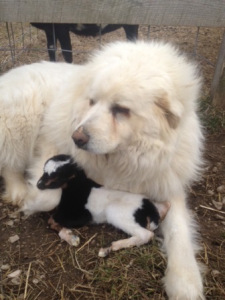
The natural areas surrounding Windshadow Farm allow for migration of coyotes and fisher through a marsh extending from the Black River. Two Great Pyrenees livestock guardian dogs are with the dairy herd at all times, and vulnerable animals are gathered within a secured dry lot at night. “The bonding [between the dogs and the goats] is incredible,” says Ron, noting that one newborn kid snuggled up with one of the dogs, Libby, when it became separated from its mother.
Ronald and Suzanne enjoy identifying the multiple species of turtles, frogs, toads and snakes found on the property and regularly see egrets, herons, and sandhill cranes, along with a host a raptors. Instead of draining seasonally-wet areas, the farm has developed a management intensive grazing system around them. “We maintain a grassed perimeter around our pastures and time our hay crop and grazing to protect ground-nesting birds and capture rain water,” says Ron. Ron and Suzanne believe they are seeing an increase in native pollinators due to their careful management and efforts to work with nature. The return of pollinators, along with more amphibians and reptiles, are signs of a healthy ecosystem on Windshadow Farm.
“We’re trying to farm as environmentally responsibly as we can,” says Ron. From the use of solar power to heat the dairy parlor’s water and to run the farm’s Polaris, Windshadow Farm considers its responsibility to future generations integral to its work. “Third-party recognition as Certified Wildlife Friendly® is important to our farm,” says Ron. “It provides a goal for us based on standards and knowledge. More importantly, it is recognition that legitimizes to our community what we all need to do in order to have a decent world for our grandkids and beyond.”
In addition to its Wildlife Friendly® certification, Windshadow Farm & Dairy is certified for its high-welfare animal care by the Animal Welfare Approved program. The farm is also a Michigan Grade A Dairy and certified for Livestock, Homestead and Cropping under the Michigan Agricultural Environmental Assurance Program. Further, Ron and Suzanne also serve on the board of directors of the Michigan Land Trustees, an organization that has promoted local food, small farms, and rural revitalization since 1976.
##
About Windshadow Farm
Windshadow Farm raises and milks a herd of pasture-raised Lamancha, Alpine, Nubian, Saanen dairy goats under the watchful eyes of 2 resident Great Pyrenees livestock guardian dogs. The farm operates in partnership with Evergreen Lane Creamery. Evergreen Lane Artisan Cheese from Windshadow Farm’s quality milk can be found throughout Western Michigan, at the Evergreen Farm tasting room in Fennville, MI, and in Chicago. For more information, see Evergreen Lane Farm & Creamery or call (269) 599-0467.
About Wildlife Friendly Enterprise Network
The Wildlife Friendly Enterprise Network and its Certified Wildlife Friendly®and Predator Friendly® programs represent farmers, ranchers, artisans and conservation heroes from around the world. Participating farms in North America maintain and enhance wildlife habitats and employ a mix of careful observation and proactive practices to allow wildlife and livestock to coexist.
Certified Wildlife Friendly® products contribute to the conservation of over twelve million hectares of diverse wetlands, forests, and grasslands; protect keystone endangered species in North America, Africa, Asia and Latin America, including wolves, elephants, cheetahs, spectacled bears and snow leopard, and benefit over 200,000 people through increased food security, income and employment. For more information visit: WildlifeFriendly
Contact: Julie Stein: Julie@wildlifefriendly.org

FOR IMMEDIATE RELEASE
WILLIAMSBURG, KY (September 9, 2015) Running an 8-acre farm near the 700,000 acre Daniel Boone National Forest, one of the most rugged areas in South Central Kentucky, Greg Sims and his wife, Cathy don’t mind the idea of sharing a little of his bounty with wild neighbors. Yet, he is careful to ensure his small flock of laying hens, young goats and bee hives do not become easy prey for area wildlife.
“If there are critters around, we’ve got them,” notes Greg. The Daniel Boone Forest is home to black bear, bobcats and coyotes, along with several endangered bat species.
Greg has a made a number of adaptations to ensure predators don’t get an easy meal from his farm, despite being open to wildlife passage and having 4 acres of woods. He uses a highly-secure shed to house his chickens and goats at night. And, he and his dogs are a frequent presence around the farm throughout the day when the animals are out on pasture.
To protect the coop against hawks, Greg zig-zagged nylon cord above the run, strung with old compact disks, which glint in the sun and rotate in the breeze. While abundant on the property, “I haven’t had a hawk come near the coop in almost 3 years” says Greg. A heavy door and secure opening mechanism keep out possums, raccoons, and foxes, among other potential visitors.
Cuddle Coop Farms achieved Certified Wildlife Friendly® status for its proactive attention to coexistence with wildlife. With dairy goats and honey bees as recent additions to the farm, electric fence and motion detector lights may soon join the Cuddle Coop’s mix of practices. Even more than honey, the pupae, larvae and eggs can serve as a strong attractant to bears. So far, Greg has found that keeping his livestock secure is both good stewardship and a good investment.
“I’ve always been an outdoors guy,” says Greg, mindful that not too many retired individuals take on the labor of farming as a later-life career. With a market garden dedicated to heirloom vegetables, home-canned products and specialty baked goods prepared by Greg’s wife, Cathy, as regular offerings at 3 weekly farmer’s markets, the Sims family has to fit relaxation into a demanding lifestyle. Greg expects goat’s milk and bee products to become a prominent addition to offerings as his livestock mature.
As a transplant from New Jersey, Greg understands the luxury of having a nearest neighbor one-half mile down the road and elbow room for people and wildlife. “New Jersey was called the Garden State for a reason,” he said. With so many family farms in northeast having been converted to housing, Greg is delighted to be surrounded by public land and neighboring farms: “I’m an old marine vet, exploring something I always thought I might want to do.
##
About Cuddle Coop Farms
Cuddle Coop Farms is a family farm in Eastern Kentucky that produces eggs from heritage Black & Lavender English Orpington, Brahma, and Wyandotte hens, along with heirloom vegetables, baked goods, and canned goods including vegetables, salsa, jams, jellies. The farm also offers Jersey Style Dirty Dogs (hot dogs) at 3 farmer’s markets per week. Now Certified Wildlife Friendly® for its land management practices, the farm is run by a retired Marine Corps Veteran and his wife. Cuddle Coop Farms is also certified as Kentucky Proud, Appalachian Proud and Homegrown By Heroes. For more information, visit Cuddle Coop Farms on Facebook.
About Wildlife Friendly Enterprise Network
The Wildlife Friendly Enterprise Network and its Certified Wildlife Friendly® and Predator Friendly® programs represent farmers, ranchers, artisans and conservation heroes from around the world. Participating farms in North America maintain and enhance wildlife habitats and employ a mix of careful observation and proactive practices to allow wildlife and livestock to coexist.
Certified Wildlife Friendly® products contribute to the conservation of over twelve million hectares of diverse wetlands, forests, and grasslands; protect keystone endangered species in North America, Africa, Asia and Latin America, including wolves, elephants, cheetahs, spectacled bears and snow leopard, and benefit over 200,000 people through increased food security, income and employment. For more information visit: www.wildlifefriendly.org
Hammock Farm Gourmet of Brooksville Provides Wildlife Habitat for Native Reptiles and Mammals While Producing Gourmet Meats and Eggs
Brooksville, FL (JULY 10, 2015) For Certified Wildlife Friendly® agricultural producer Jean White of Hammock Farm Gourmet, allowing wildlife to flourish is as critical as caring for her cornucopia of pasture-raised meat goats, pigs, sheep and chickens.
“We had a pig wallow full of [native] tadpoles I kept putting water into,” says Jean. Whenever Jean can encourage local wildlife to succeed in the face of Florida’s tide of invasive species, she takes action. “We need to pay attention to all the little creatures,” says Jean, noting that she has a butterfly garden on the 22 acre property—which includes 7 acres of forest—and leaves stands of native plants, including elderberries and wild persimmons, to provide food and habitat for wildlife, especially birds.
Larger wildlife also make use of the farm, which lies on the flight path between an eagle’s nest and its fishing spot. With avian predators, bobcats and deer as regular visitors to a creek that borders the property, acting to keep Hammock Farm Gourmet’s heritage breed animals safe from predators is an integral part of life on the farm. In order to protect her newborn kids and lambs, Jean keeps them in pastures nearby to frequent human activity. Chickens, which are on pasture during the day, are enclosed at night in a well-secured coop.
Jean has also found that she has better success with Australorp chickens, a heritage breed with a larger body size with black feathers. Lightered-colored chickens, as well as smaller birds, appear to be preferred by hawks. “We do our best to make sure we’re not inadvertently feeding the wildlife while still making sure they can pass through our property and go about their daily business,” says Jean.
“In our state, the corridors for bears and panthers are on cattle ranches,” she says. “We need consumers to understand the connections between farming and conservation.” By gaining recognition for Hammock Farm Gourmet as a Certified Wildlife Friendly® farm, Jean is glad showcase how agriculture and conservation fit together. Read more »
FOR IMMEDIATE RELEASE
WFEN Welcomes Nuubia San Francisco as Founding Corporate Network Member Proving People, Planet and Profit are Compatible
San Francisco – January 6, 2015 – The Wildlife Friendly Enterprise Network (WFEN), a global community dedicated to supporting products that conserve threatened wildlife and contribute to economic vitality for local communities, and Nuubia San Francisco, an artisan chocolatier making fine confections hand crafted from precious, humanely sourced ingredients, are pleased to announce an exciting new partnership blending gourmet sustainably sourced fancy food with international conservation and development.
“We are thrilled and honored to join The Wildlife Friendly Enterprise Network. Conservation is at the core of Nuubia’s DNA and we take great care that our commercial aspirations and operations benefit the preservation and protection of our planet,” said Nuubia CEO and Co-Founder Alexandra Saunders. “We look forward to partnering with other WFEN members who passionately respect ecosystems, animals and humanity. Working together we can make a difference in people’s lives with products that showcase efforts to protect endangered habitats, species and wild ecosystems.”
“We met Alexandra and learned about Nuubia San Francisco at the Great Apes Summit and Wildlife Film Festival in Jackson Hole, Wyoming last year,” said Julie Stein, Executive Director and co-Founder of Wildlife Friendly®. “Her passion for sustainability from her choice of product packaging to her decision to source both Palm Oil and GMO free in her products was apparent. We are excited to work with Nuubia to protect Great Apes and other key wildlife and habitat around the world and to demonstrate once again that ‘green’ does not mean a compromise in product quality. People, planet and profit are compatible.”
Nuubia San Francisco’s new retail location will open this month in the lobby of Twitter’s San Francisco headquarters. In addition to being a unique destination for ultra-fine confections, French macarons and ice creams, it will serve as a platform from which to show that fine food producers can be vested in the protection of species, ecosystems and the planet. To further expand consumer awareness, Nuubia San Francisco is also collaborating with the world famous San Diego Zoo, introducing zoo patrons to fine products that are made without the use of palm oil. Read more »
FOR IMMEDIATE RELEASE
Chianti Cashmere Goat Farm earns Wildlife Friendly® Certification for Coexisting with Wolves
Radda in Chianti, Italy: – 02 Dec 2014 – The Wildlife Friendly Enterprise Network (WFEN), a global community dedicated to supporting products that conserve threatened wildlife and contribute to economic vitality in rural landscapes, is pleased to announce the awarding of Wildlife Friendly® Certification to Chianti Cashmere Goat Farm a sustainable luxury cashmere operation in the Tuscany region of Italy which raises cashmere goats while using predator-friendly tools to coexist with wolves.
“We applaud the patience, hard work and investment that producers like Chianti Cashmere have made in order to coexist with a keystone predator like wolves. By awarding our certification label which recognizes the use of non-lethal farming and herding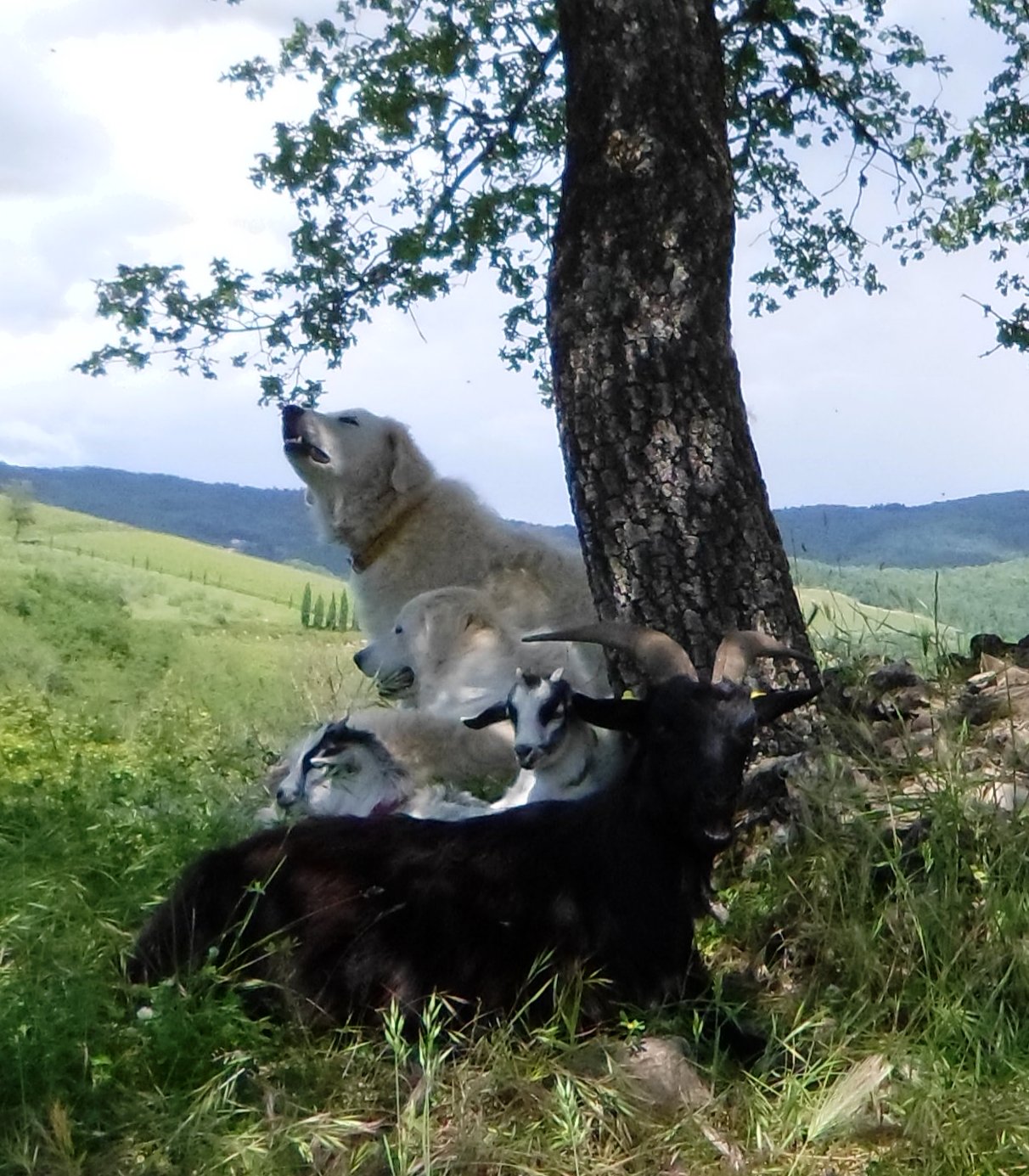
Predator-friendly practices used by Chianti Cashmere include employing a dozen Abruzzo guard dogs for their herd of 250 Cashmere Goats, an ancient breed of shepherd dog raised for centuries in southern Italy, to protect against wolves and bears.
Dr. Nora Kravis, the founder and owner of Chianti Cashmere, is also working with Dr. Duccio Berzi, a technical advisor for the non-profit Italian group Canislupus Italia, towards the selection and implementation of preventative and non-lethal anti-predator solutions with the goal of making the farm a model for Best Management Practices (BMP) to spread predator-friendly know-how and certification to other Italian herders.
In addition, Dr. Kravis is an expert on pastoralism and cashmere goat genetics, with degrees in both Veterinary Medicine and Textile Design, and is a regular participant and convener of workshops on related subjects internationally, and on the farm itself which is an agritourism destination for tourists as well as a center for the transfer of best practices to breeders and herders.
Chianti’s goat herd, which produces the raw material for a unique line of exclusive, locally processed Italian cashmere yarn, accessories and home textiles, originated in 1995 with the importing of the first cashmere goats into Italy, and improved over time by careful cross-breeding with local goats to create an Italian cashmere goat.
“We are delighted to have earned Wildlife Friendly® certification and to be recognized for our sustainability practices as well as to connect with consumers and companies who appreciate our efforts to coexist with wolves and other wildlife here in Italy” said Dr. Kravis.
Dr. Luigi Boitani, Professor of Conservation Biology at the University of Rome and widely considered to be one of the world’s leading authorities on wolves, explains “Wolves are recovering and expanding in many European countries and conflicts with humans are widespread and often difficult to manage. As a consequence wolves are vulnerable. This Wildlife Friendly® certification is extremely important for farmers across Europe showing them that coexistence is possible and recognizing and showcasing success stories for farmers using predator-friendly practices.” Read more »
FOR IMMEDIATE RELEASE
Madrone Coast Farm First in California to Achieve Certified Wildlife Friendly® Status for coexistence with Mountain Lions
Madrone Coast Farm of Felton, CA Provides Habitat for Pumas
FELTON, CA (October 28 2014) Madrone Coast Farm is the first farm in California to achieve Certified Wildlife Friendly® status in recognition of its wildlife stewardship practices, following an ISO-compliant third-party audit process. “We feel that coexistence with wildlife, including mountain lions, is very important to the health of the local ecosystem. Farmers and ranchers can successfully use proactive practices to coexist with predators,” says farmer Alison Charter-Smith.
Charter-Smith and her husband, Tony Jaehnichen, raise heritage chickens, ducks, goats, sheep, and pigs, and offer pasture-raised chicken and duck-eggs, pork and wool at 4 farmer’s markets throughout the Santa Cruz area. The vast majority of their farm is wooded and accessible to wildlife, including 3 juvenile mountain lions seen on the farm this past summer. In addition to maintaining ponds to provide water, Charter-Smith and Jaehnichen are working to increase the habitat value of their land for terrestrial and avian visitors alike. The farm has nesting boxes for swallows, bats, owls and bees. Black-tailed deer, coyotes and bobcats are also in the vicinity.
To keep stock safe, Madrone Coast Farm keeps a close eye on its animals, especially at vulnerable periods, such as lambing, corrals stock at night, and engages the help of a pair of Maremma livestock guardian dogs. “I feel great knowing my food purchases support wildlife,” says Madrone Coast customer Bonnie Doran. “It’s important to me to know the food I’m eating is not adversely impacting the ecosystem. I was raised to respect the wildlife that have always been here and belong. We need to coexist with native species, not to kill them off.”
“The Certified Wildlife Friendly® label helps consumers to vote with their pocketbooks. Consumers can now support free-ranging wildlife as they buy from local farms,” says Julie Stein, Executive Director of the global Wildlife Friendly Enterprise Network. Certified Wildlife Friendly® farms and ranches support wildlife, biodiversity, and a host of ecosystem services. Read more »
Shea Terra Organics’ Tamanu Oil is Now Certified Wildlife Friendly®
The natural skin care company has partnered with Wildlife Friendly Enterprise Network in an effort to help conserve biodiversity and create jobs in Madagascar
FOR IMMEDIATE RELEASE
Sterling, VA, March 2014 – For over a decade, Shea Terra Organics, a natural skin care line made using indigenous African ingredients, has provided 100% Pure Tamanu Oil (Certified Organic) from Madagascar. Starting this month, the oil that customers have come to love for its healing and anti-aging benefits will now be Certified Wildlife Friendly®. This new development comes as a result of Shea Terra Organics purchasing tamanu oil from a trading company in Madagascar that is certified by the Wildlife Friendly Enterprise Network (WFEN), whose goal is to help create jobs for communities in high poverty areas while also conserving Madagascar’s biodiversity.
Shea Terra Organics’ Tamanu Oil will now directly support the Vohibola forest, the last remaining forest on the eastern central coast of Madagascar with numerous endemic species. The Vohibola forest hosts four species of trees threatened with immediate extinction that cannot be found anywhere else on earth, one of which has only 33 specimens left. This project helps to ensure the sustainable management and conservation of biodiversity. It also helps local communities benefit from additional employment opportunities, improved income, larger profit margins, as well as access to training and education on sustainable business practices. Read more »

